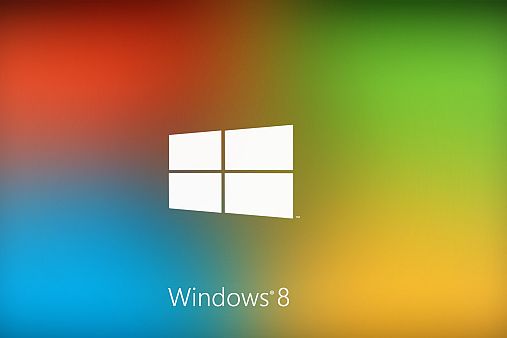Published on the 06/09/2012 | Written by Gunnar Berger

I’ve been on a mission for a while now to dive into Windows 8 and to try and come up with a definite opinion on what I think about the OS; admittedly I’ve been having a very difficult time…
I wonder whose job it is at Microsoft to lose sleep over Microsoft’s lack of owning the tablet market.
It doesn’t take a Gartner analyst to look around your local coffee shop and realize there is a major trend towards tablet devices and away from PCs. (It does take a Gartner analyst to back this up with a lot of data, which we have.)
This trend puts Microsoft in a bad spot in the long term because Microsoft has no presence in the tablet market, nor do they have an operating system built for tablet use; this changes with Windows 8. Microsoft understands this trend and although they may be a few years behind, Windows 8 is an audacious move to get into the tablet market by evolving their flagship OS into a tablet focused OS.
If this move proves successful and they are able to convert all the desktops out there to Windows 8, they would become the number one tablet OS (regardless that the OS may not be used on a tablet in all cases).
This fact alone makes the decision to make Windows 8 both a tablet OS and a desktop OS a brilliant move by Microsoft. The question on many people’s mind is if this move will work or not.
One issue I see with this move is that Windows 8 doesn’t seem like a move to enable the enterprise, but a move to support the trend towards consumerisation within the enterprise. In other words this move is aimed at end-user consumers, not IT departments, but this may not be a bad thing for Microsoft. We recently did a large field research study and specifically asked all of our interviewees if they were looking at Windows 8. Most laughed. The fact is most enterprises are still trying to get to Windows 7 and few enterprises are ready for Windows 8. I believe that after the lessons of Windows ME and Windows Vista many enterprises will wait on Windows 8 to see how it works out. I also think Microsoft knows this and is using this to their advantage (and I applaud them for it). If enterprises aren’t going to be breathing down their necks on this OS then they have some flexibility to build an OS that is more geared for the consumer and thus they can work on winning back that market, and believe it or not Microsoft cares a lot about the consumer market.
When I was at TechEd a Microsoft employee made a statement that I think best sums this up: “Microsoft doesn’t bet against the consumer. In fact a few decades ago a few people started a company that focused on what the consumer wanted, that company became Microsoft.”
I thought this was an excellent statement for Microsoft to make, and I applaud them for their efforts in Windows 8 to win the consumer back. If this move proves successful IT departments will rejoice as tablets running Windows 8 are bound to be easier to manage in an Active Directory environment.
The only real issue that I have (again – from a business stand point) is that I see a lot of marketing from Microsoft on Windows 8 being an enterprise solution.
I guess this would depend on how you define “enterprise solution”. If the marketing said this was a way for enterprises to support the consumerization trend within the enterprise, I’d agree. If the marketing said it was a way to enable tablets in an enterprise without losing the level of control Windows typical gives enterprises, I’d agree (but would also need to verify). Unfortunately, that’s not what I’m hearing, I think Microsoft really wants to move all desktops to this next OS, now I can’t blame them, but that doesn’t mean I agree with them.
So overall I think Windows 8 is a smart move for Microsoft, anything that gets them into the tablet market is a good move for Microsoft and Windows 8 is a major step in that direction.
Thankfully Microsoft was nice enough to send me a Samsung Series 7 “Slate” device with Windows 8 installed on it. (A “slate” to the untrained eye looks and behaves like a tablet but is really a laptop in disguise.)
I’ve been playing with this slate for a while now and tomorrow I will be talking about my experiences with it.
[Disclaimer: Gartner analysts use their blogs to share their personal views and opinions on subjects close to their hearts.]
ABOUT GUNNER BERGER//
 Gunnar Berger is a research director for Gartner’s IT Professionals service. He covers desktop, application and server virtualization. Mr. Berger has spent the majority of his career as a specialized consultant focused in what is now called end-user computing.
Gunnar Berger is a research director for Gartner’s IT Professionals service. He covers desktop, application and server virtualization. Mr. Berger has spent the majority of his career as a specialized consultant focused in what is now called end-user computing.



























